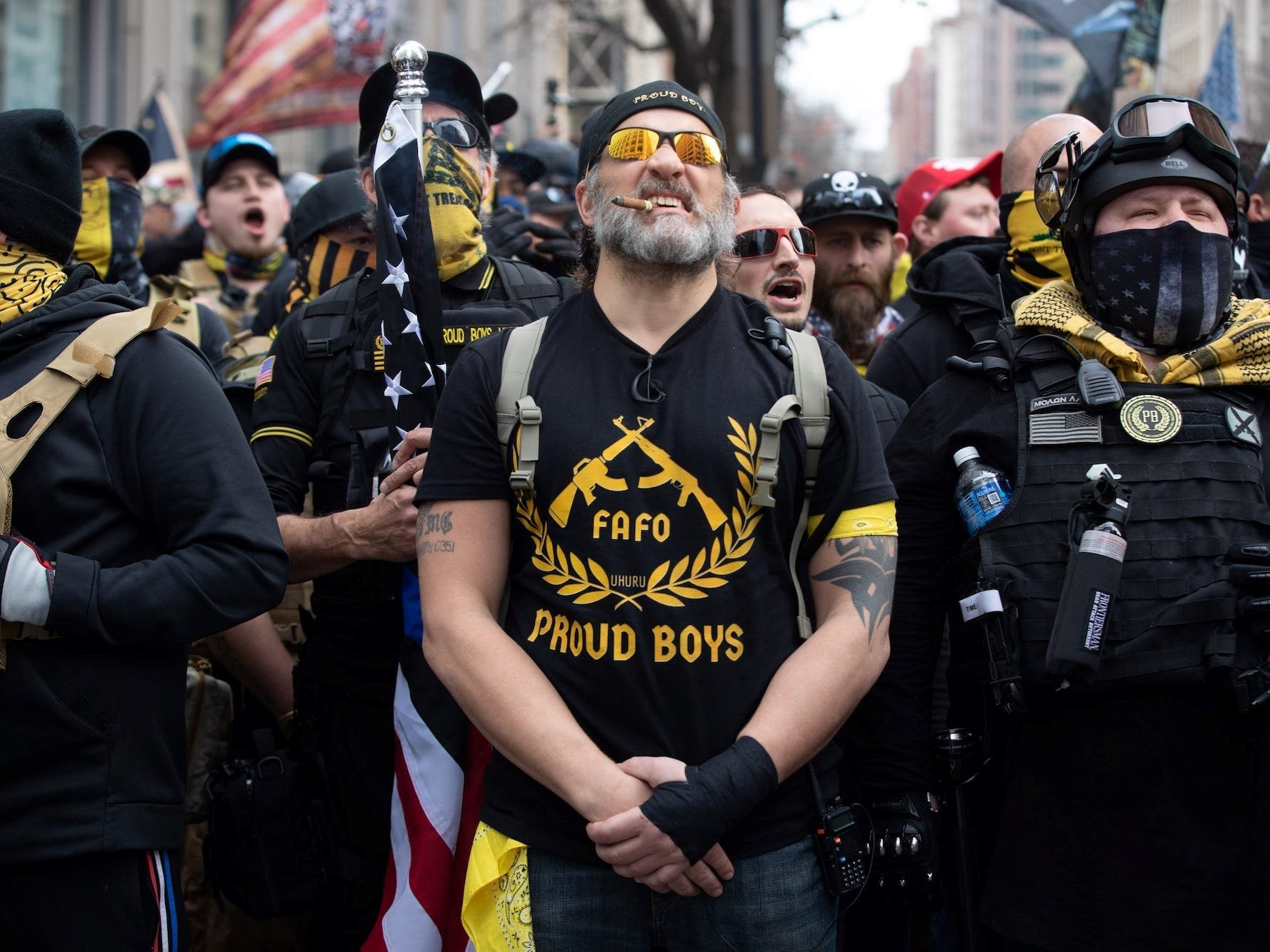'Modern racism' radicalizing US citizen militias
Amy Cooter, an American sociologist, researched the reason behind Americans joining citizen militias who use heavy machine guns under the pretext of self-defense.
-

Proud Boys march in support of former President Donald Trump in Washington, DC on December 12, 2020 (Getty Images)
Amy Cooter, an American sociologist and expert in contemporary US militias, studied US citizen militias and the reasons behind people joining them. She found that their members were "almost exclusively white men," pushing so-called values of nationalism, white supremacy, and "restor[ing] 'better times'" from [America's] past.
In an article for Scientific American, Cooter found that militia members advocate and plot violence, even against government officials, and advocate white supremacy and voice anger.
A group of defectors from a militia was arrested in Michigan in 2020, where Cooter based most of her article on, over plotting a kidnapping of state Governor Gretchen Whitmer, accusing the governor of "failing to support individual liberties," which reflects their willingness to break laws, chiefly through violence, to achieve their goals.
The sociologist highlighted how some militiamen took to social media, stressing the need to act about the "stolen presidential election." Those members, she said, saw that their core values, which entail individualism and self-determination, were under threat by racial justice, the COVID-19 pandemic and the governmental attempts at curbing it, and "election fraud."
"Many of these people heard their fears reinforced through right-wing news media and Donald Trump’s rhetoric about threats from immigrants and corrupt Democrats," she said.
In her piece, she noted that she observed an increase in extremism in recent years, underscoring how militia events turned from an arena in which she said people "used to focus on camaraderie and preparedness," were now asserting that the January 6 Capitol insurrection was merely a "protest."
Cooter attributed militia emotions and activity to political leaders who could encourage exclusionary thinking and paranoia or a foreign terrorist attack that backward groups could see as "threatening to American's safety or culture," underscoring that those same emotions could be exacerbated by said political leaders.
The sociologist touched on how those that are most apprehensive were racist or xenophobic, asserting that they were more prone to extremism.
"They are susceptible to appeals from hate groups such as the Proud Boys or overt neo-Nazis, believing that despite differences, they all share the overarching value of protecting what they see as America's foundation," she said.
The majority of citizen militiamen back the second amendment and the right of citizens to bear heavy arms to boost "self-defense" in the case of foreign threats and natural disasters, Cooter wrote.
In her analysis, she found that militiamen show symptoms of what sociologists call "modern racism." They endorse ideas of cultural inferiority rather than biological deficiency.
She gave an interviewee as an example, who she said told her they were not "outright racist," and 'backed' that argument by saying they had several black friends. However, the interviewee declared that some black people made them uncomfortable, groups of black men, to be specific.
As per her observation, his comment reflected stereotypical notions that treat groups of black men as otherized and different despite the lack of personal connection to them.
Research conducted by Harvard explained that modern racism came into existence after white Americans changed their attitude toward black Americans. Those people usually fight against the political rights of all those who oppose them, in addition to black Americans.
An interesting aspect of the surging neo-Nazism in the United States is that less than two weeks ago, the United Nations General Assembly adopted an anti-Nazism resolution, and the United States was the only country other than Ukraine to vote against the resolution.
The resolution was part of two draft resolutions taken from the report on "Elimination of racism, racial discrimination, xenophobia, and related intolerance."
The resolution was well accepted among the member states, with 130 votes in favor. However, what was quite controversial, is the fact that the country constantly "championing human rights," the United States, voted against the resolution that would combat the glorification of numerous racist practices, such as Nazism and neo-Nazism.

 4 Min Read
4 Min Read








